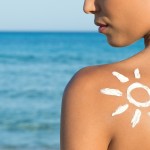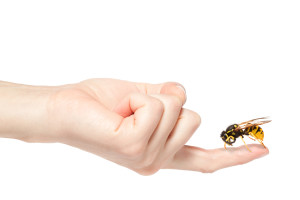SUNSCREEN: WHAT IS THE SAFEST OPTION?
There are two ways that a sunscreen can protect the skin from sun damage: a mineral barrier or a chemical barrier. Mineral sunscreens typically include ingredients like zinc oxide or titanium dioxide, which create a physical barrier to protect the skin from the sun. Chemical sunscreens use one or more things that have names like oxybenzone, avobenzone, octisalate, octocrylene, homosalate, and octinoxate.
Best option to protect your skin – COVER UP. If you or your family has a history of skin cancer, the safest option is to cover up. This includes staying in the shade, wearing a hat and long sleeves.
When shopping for sunscreen:
AVOID:
Ingredients – Oxybenzone, retinyl palmitate, added insect repellent
Products – sprays, powders, SPF over 50
LOOK FOR:
Ingredients – zinc oxide, avobenzone, mexoryl SX
Products – Cream, broad-spectrum protection, water-resistant, SPF under 50
Here is a list of the safest sunscreens by the EWG:
- Alba Botanical Mineral Sunscreen
- Badger Mineral Sunscreen
- All Terrain KidSport SPF30 Oxybenzone-Free Natural Sunscreen
- Burt’s Bees Sunscreen Stick
- JASON Mineral Sunscreen
- Naked Turtle Mineral Sunscreen with Aloe
- Sunology Natural Sunscreen
- The Honest Company Sunscreen
PREVENTING AND TREATING INSECT BITES
With summer upon us, we are spending more time outdoors in the beautiful Pacific Northwest we get to call home. However, many bugs are also enjoying the great outdoors as well. Here are some tips to avoid getting bit:
- Wear light colored, long sleeves and pants to protect your skin.
- Around a campsite or backyard patio, use citronella candles, diffusers, mosquito coils, and mosquito sticks. These devices are most effective in windless conditions.
- Interesting: taking a B-Complex supplement with 30-100mg of thiamine (B1) can make you less attractive to mosquitoes.
- Regularly consuming garlic or garlic capsules can also repel mosquitoes
Most are familiar with the ingredient DEET. However, DEET has been deemed by the EPA as a carcinogenic! There are alternatives available without DEET that can be just as effective.
- Essential oils such as natural lemon eucalyptus oil, citronella, lemongrass oil, peppermint oil, and vanillin have been used to deter insects. Apply often, as natural oils may only last only 30 min to 2 hours. * Be careful with essential oils if you have sensitive skin or allergies
- Ingredient Picaridin is a good DEET alternative with many of the same advantages but without the same health concerns.
Recommended brands:
- Jade & Pearl All Natural Beat it!
- All Terrain Herbal Armor Skin & Fabric Insect Repellent Spray
- Repel Lemon Eucalyptus Pump-Spray Insect Repellent from REI
- Natrapel Picaridin Insect Repellent from REI
POISON IVY – HOW TO AVOID AND TREAT
The best way to identify poison oak is to look at the number and color of the leaves. Specifically, three leaves at the end of the branch, with two leaves across from each other and a terminal leaflet at the end. During the spring and fall, the leaves turn bright red; spring is when people are most susceptible to the rash.
If you know you have come into contact, wash off in the nearest water source, whether it’s a lake, river, or mud puddle. If you have to wait until you get home, Take a cold shower and scrub with a soap like Tecnu, which is made to trap and remove oils. Dawn dish soap also works.
To treat the itch: Try All Terrain Ditch the Itch cleansing bar (available in the lobby). Calamine lotion and aloe vera gel also soothes the itch.


